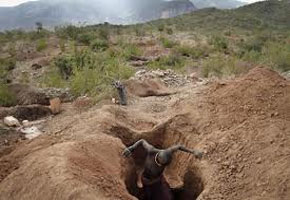Teachers fleeced?
subscription fees from each member.
PTUZ has around 15 000 members and collects US$8 from each member.
Teachers accuse the unions of failing to press for salaries above the poverty datum line of US$502 per month, yet they were quick to raise subscription fees.
Teachers are now taking home an average of US$300 per month, though some get more through incentives paid by parents.
The teachers also accused the unions of not giving them value for their money.
In the past, subscriptions were used to cover legal representation, funeral expenses and soft loans.
However, these services have disappeared at some of the unions possibly due to the economic meltdown before the introduction of multiple currencies in 2009.
The union leaders are accused of granting themselves high monthly allowances without the approval of their constituents.
Some of the leaders have houses and cars, yet their salaries are not different from the rest of the Government teachers.
“We no longer have trust in our leadership. What we used to get is not what we are still getting.
“It seems they are just fleecing us of our hard-earned money.
“Even when it comes to salary issues, they are doing nothing because they are not negotiating anything as figures are simply imposed on them,” said a Gutu-based teacher who declined to be named.
Another teacher from Harare said: “You wonder where they get the money from.
“We are all teachers but they have big cars and own houses and you wonder how they are acquiring these assets.”
He said that was the reason why their leaders where refusing to relinquish power.
Others said their money was being deducted without their consent while some said the subscriptions were just imposed on them.
“As for me, money has been deducted direct from the Salary Service Bureau without me agreeing and I wonder what is happening. I did not fill in any forms.
“I have never been a member of any union, but to my surprise a certain union (name supplied) is still deducting my money.
“I have tried to stop deductions from SSB but failed,” he said.
The unions, however, insist they were still offering quality services to their members and that no money was being misused.
Zimta chief executive, Mr Sifiso Ndlovu, said every decision was made after consultation with members.
“We have a constitution and hold annual conferences to allow involvement of the constituency in passing resolutions and directing our policies.
“We also have elections after every four years unlike other unions where leaders have been in power for the past 14 years.
“If there are any complaints against Zimta, they are probably coming from people who do not understand our operations,” he said.
Zimta has structures down to the school level, which help in the cascading down of information.
TUZ chief executive, Mr Manuel Nyawo, dismissed the complaints as a “smear campaign” by people who wanted positions in the union.
“This is obviously from disgruntled persons clamouring for positions because if not satisfied one has an option of ceasing membership or joining another union,” he said.
PTUZ treasurer Mr Ladistous Zunde accused other unions of diverting from their core mandates.
“We do things in a different manner but there is no doubt other unions have digressed from their core mandates of salary negotiation and conditions of service.
“We have labelled some of them yellow associations as they fail to deal with even simple professional issues like representing a teacher at school.
“As for us, we have even introduced extra schemes such as providing our members with hearses in times of bereavement.
“We are doing our best to deal with the needs of the teachers,” he said.
There are about 111 000 teachers in Zimbabwe, but some of them do not belong to any union.











Comments